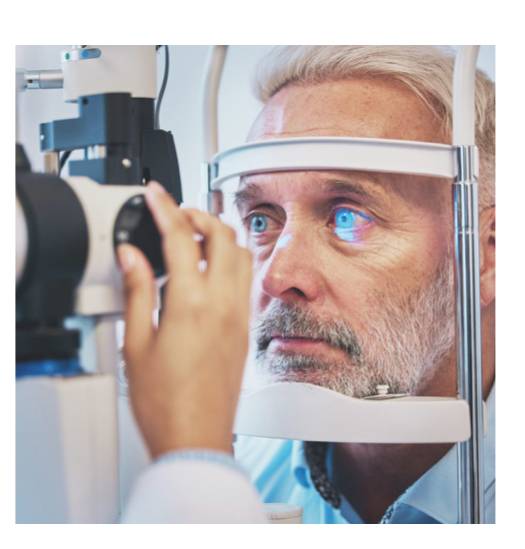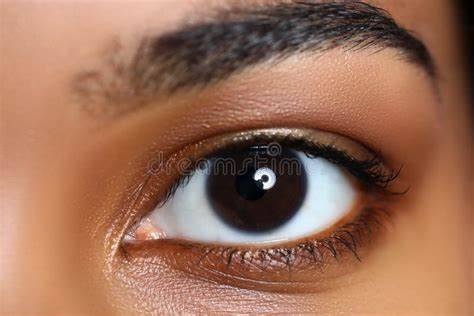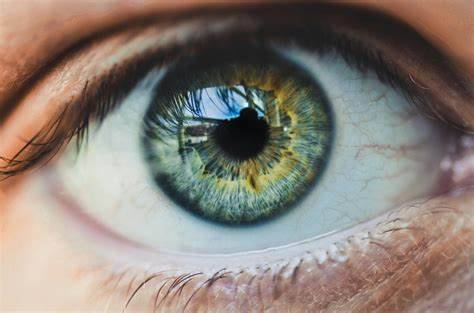Words by Professor Sunil Shah, Consultant Ophthalmic Surgeon, Midland Eye
 If you’ve ever fumbled for your glasses first thing in the morning or struggled with contact lenses after a long day, you might have wondered whether laser eye surgery could be the answer. It’s a thought that crosses many people’s minds but understanding what’s involved—and whether it’s right for you—can feel overwhelming.
If you’ve ever fumbled for your glasses first thing in the morning or struggled with contact lenses after a long day, you might have wondered whether laser eye surgery could be the answer. It’s a thought that crosses many people’s minds but understanding what’s involved—and whether it’s right for you—can feel overwhelming.
Let’s break it down and explore what laser eye surgery really is, how it could help, and, most importantly, whether it’s the best option for you.
What is Laser Eye Surgery?
At its heart, laser eye surgery is a way to reshape your eye’s cornea – that’s the clear, dome-shaped surface at the front of your eye. Think of it like changing the lens of a camera to bring everything into better focus.
Using incredibly precise lasers, surgeons can modify the cornea’s shape to change how light enters your eye, helping to correct various vision problems that might currently have you reaching for your glasses or contact lenses.
It’s actually a remarkably quick procedure—usually taking just 15-30 minutes for both eyes—and has become one of the most common elective surgeries in the UK. Yet, laser eye surgery isn’t a one-size-fits-all solution and sometimes there are better options to solve your vision problems.
 What Laser Eye surgery cannot treat
What Laser Eye surgery cannot treat
While laser eye surgery can help with many vision problems, it’s important to understand its limitations. Some eye conditions require different types of treatment entirely. For instance, refractive laser eye surgery can’t help with age-related macular degeneration, glaucoma, or severe diabetic eye disease (although there are other lasers available for those conditions).
Laser eye surgery also can’t prevent the natural ageing of your eyes. So, while it might give you perfect distance vision now, you may still need reading glasses as you get older – just like everyone else.
It’s important to note that while both procedures have “laser” in their name, laser eye surgery is quite different from laser cataract surgery or laser refractive lens exchange. Laser eye surgery reshapes your cornea to correct vision problems, while cataract surgery and refractive lens exchange—whether laser-assisted or traditional—both replace your eye’s natural lens with an artificial one rather than reshaping your natural lens.
Considering every option
While laser eye surgery is an effective treatment for those with moderate prescriptions who don’t need reading glasses, refractive lens exchange can prove a longer-lasting solution for many patients. In fact, most patients who initially come to Midland Eye Clinic for laser eye surgery opt to have refractive lens exchange surgery instead.
Not only can refractive lens exchange fix severe vision issues, but it can also help with reading issues in older patients. It also ensures that you’ll never suffer from cataracts as you are swapping a natural lens for an artificial one.
 This is why having a thorough consultation is so important; it helps ensure you have realistic expectations about what the surgery can and cannot achieve and a full range of options for your particular situation. The best eye surgery is the one that is right for you long-term, not which solves an issue for the time being.
This is why having a thorough consultation is so important; it helps ensure you have realistic expectations about what the surgery can and cannot achieve and a full range of options for your particular situation. The best eye surgery is the one that is right for you long-term, not which solves an issue for the time being.
The journey to clearer vision
Getting laser eye surgery typically starts with a thorough assessment. If you are having vision issues and think that laser eye surgery could help, start by chatting with your optician, or you could self-refer to a specialist eye clinic like Midland Eye.
If your consultant believes that laser eye surgery might help improve your vision problems, they will then book in an initial consultation. During your initial consultation, your eye care team will:
Recovery and Results
The recovery journey after laser eye surgery is usually straightforward, though it varies depending on which procedure you’ve had. Most people find their eyes feel a bit uncomfortable for the first few hours after surgery – rather like having a grain of sand in your eye. This is completely normal and usually eases quickly.
 Your vision will typically be a bit blurry at first, rather like looking through a steamy window, but this gradually clears over the first few days. You’ll need to use eye drops regularly during this time to help with healing and keep your eyes comfortable. Many people are pleasantly surprised by how quickly they can return to their daily routine, though it’s wise to take things easy for the first few days.
Your vision will typically be a bit blurry at first, rather like looking through a steamy window, but this gradually clears over the first few days. You’ll need to use eye drops regularly during this time to help with healing and keep your eyes comfortable. Many people are pleasantly surprised by how quickly they can return to their daily routine, though it’s wise to take things easy for the first few days.
Over the following weeks, your vision will continue to settle and improve. While many people notice dramatic improvements within days, your eyes need about 3-6 months to fully stabilise. During this time, you might notice your vision fluctuates slightly – being a bit sharper or blurrier at different times of the day. This is perfectly normal and gradually settles down.
Most people achieve very good vision after their surgery, with many reaching 20/20 vision or better. However, it’s important to remember that everyone’s eyes heal slightly differently, and while the vast majority of people are delighted with their results, a small number might need a follow-up procedure to achieve their best possible vision.
Depending on your clinic and the scope of the surgery, there may or may not be an additional cost for the follow-up procedure. At Midland Eye, for example, we provide a free follow-up surgery for further correction as we specialise in complex prescriptions, where it is difficult to predict the exact outcome of surgery.
The financial side
Cost is often a key factor in decision-making. Laser eye surgery typically isn’t available on the NHS unless you have specific medical conditions affecting your vision. For most people, it’s a private treatment costing between £2,000 and £4,000 per eye, and many clinics offer payment plans to spread the cost.
Consider that refractive lens exchange surgery costs around £3,000 to £4,000 per eye and can treat more severe vision issues, prevent cataracts and help with reading issues as you age, and it is clear why so many choose it over laser eye surgery.
Making your decision
Laser eye surgery can be life-changing, but it’s important to:
 Remember, while laser eye surgery has an excellent safety record and high satisfaction rates, it’s still a surgical procedure. Take time to weigh up your options, and don’t feel rushed into making a decision.
Remember, while laser eye surgery has an excellent safety record and high satisfaction rates, it’s still a surgical procedure. Take time to weigh up your options, and don’t feel rushed into making a decision.
Looking for more information? The best next step is to book a consultation with an eye specialist who can assess your individual case and answer any specific questions you might have. Whether laser eye surgery turns out to be right for you or not, you’ll have a much clearer understanding of your options.